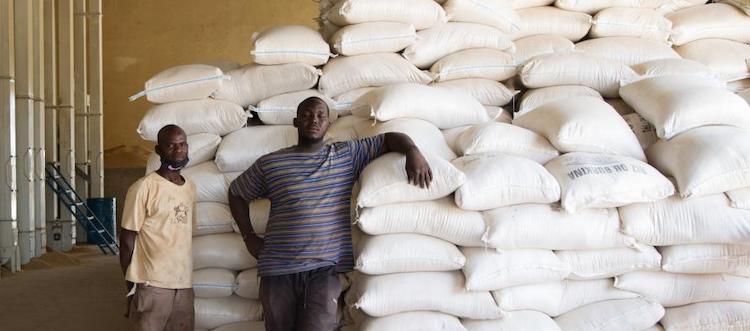By Lisa Vives, Global Information Network
NEW YORK, 7 March 2023 (IDN) — Once on the decline, global hunger has reversed course over the last ten years, as multinational food companies increasingly replace domestic production and leave populations “food insecure.”
According to a recent Greenpeace International report, food imports from factory farms have jumped 650 per cent in Kenya alone, making huge profits for a handful of corporations and generous dividends for their shareholders.
Twenty agribusiness corporations —the largest in grain, meat and dairy—gave as much or more in dividends to their shareholders than could have fed the entire world’s most vulnerable people in a year.
“This reflects how, with the support of many African governments, the global food system forces imports on Africans when they could be producing and profiting from a higher proportion of their own food,” Greenpeace found.
According to the UN, multinational food corporations gave $53.5 billion to their shareholders in 2020 and 2021—or more than enough to fund the basic needs of the world’s most vulnerable people in that year.
Four companies in the U.S. and Europe—Archer-Daniels-Midland, Cargill, Bunge and Dreyfus—control 70 to 90 per cent of the world’s grain trade but are not obligated to disclose what they know about global markets, including their own grain stocks.
This allows companies to withhold information that would help to stabilize prices were it published with full transparency, Greenpeace alleged.
“This is the new colonialism,” declared the group’s Communication and Story Manager, Hellen Dena.
“Africa’s governments have allowed the ultra-rich of the US and Europe to retain too much power over Africans and our food system,” explained Dena “It’s because of them that war and plague lead to famine—and to the rich getting richer.”
Ghana, for another example, imports rice, wheat, soybean meal, and poultry. Even bananas are imported from the US. Nigeria relies on $10 billion of imports to meet its food and agricultural production shortfalls (mostly wheat, rice, poultry, fish, food services, and consumer-oriented foods). In 2021, food inflation rose to 22.95%, with wide-ranging price increases across items such as cereals, yam, meat, fish, and fruits.
Europe, Asia, the United States, South America, and South Africa are major sources of agricultural imports from commercial food exporters.
“But it doesn’t have to be this way,” continued Dena. “Africans are rising up to demand change. Smallholder farmers have filed a case in court over a punitive seed law that criminalizes farmers for selling and sharing seeds… Limiting farmers from sharing and selling seeds will reduce diverse seed access, thus further aggravating food insecurity and over-dependence on imports in the country,” she said.
“Kenya’s government must promote sustainable farming methods such as ecological farming that are resilient to climate shocks and help producers and consumers control the food chain. Ecological farming will ensure that Kenyans have better access to food; it will protect jobs, reduce the emissions that cause extreme weather and protect the biodiversity we depend on,” Dena concluded. [InDepthNews]
Image: Burkina Faso, rice-factory workers. Credit: IISD
IDN is the flagship agency of the Non-profit International Press Syndicate.
Visit us on Facebook and Twitter.
We believe in the free flow of information. Republish our articles for free, online or in print, under Creative Commons Attribution 4.0 International, except for articles that are republished with permission.

